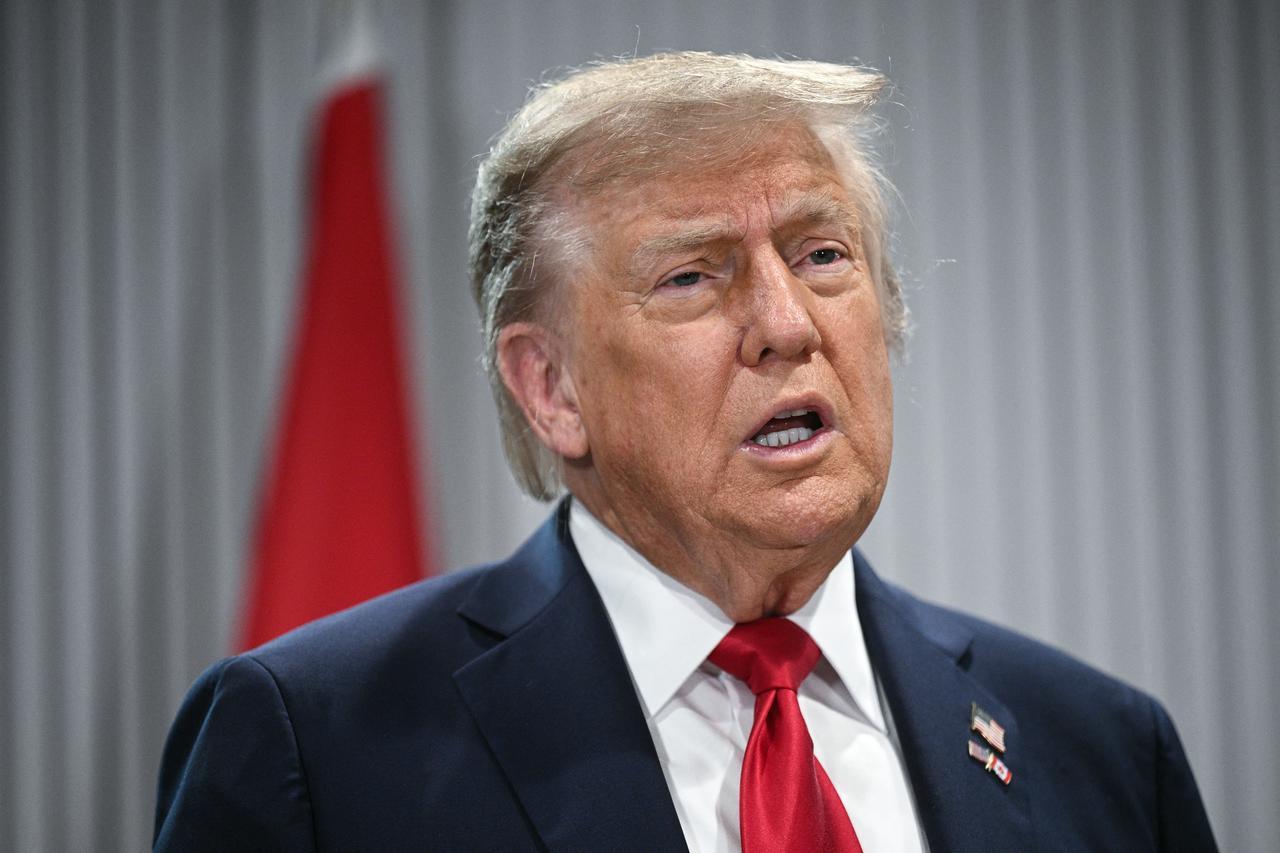
U.S. President Donald Trump said Wednesday he is considering whether the United States will join Israeli military strikes against Iran, while revealing that Tehran has reached out seeking negotiations to end the escalating conflict.
Speaking to reporters on the White House South Lawn during the installation of a new flagpole, Trump said his patience with Iran "had already run out" and reiterated his demand for the Islamic republic's "unconditional surrender."
"I may do it, I may not do it. I mean, nobody knows what I'm going to do," Trump said when asked about potential U.S. airstrikes against Iran. "I can tell you this, that Iran's got a lot of trouble, and they want to negotiate."
The president revealed that Iran had suggested sending officials to the White House for discussions about Tehran's nuclear program in an attempt to halt Israel's ongoing air assault. However, Trump characterized the overture as coming "very late."
"I said it's very late to be talking. We may meet. There's a big difference between now and a week ago, right? Big difference," Trump said. "They've suggested that they come to the White House. That's, you know, courageous, but it's, like, not easy for them to do."
When pressed on whether negotiations remained possible, Trump replied: "Nothing is too late."
The comments represent a shift in Trump's approach toward Iran. The president had previously favored diplomatic efforts to address Iran's nuclear program, seeking to replace the nuclear agreement he withdrew from during his first term in 2018. However, since Israel launched strikes against Iran six days ago, Trump has aligned himself more closely with the key U.S. ally and is now considering direct American military intervention.
Trump escalated his rhetoric Tuesday with a series of social media posts calling Iran's Supreme Leader Ayatollah Ali Khamenei an "easy target" and demanding Iran's "UNCONDITIONAL SURRENDER."
Khamenei responded Wednesday by declaring that Iran would never surrender and warning the United States of "irreparable damage" if it intervenes in the conflict.
Asked to clarify his surrender demand, Trump said: "Two very simple words. It's very simple -- unconditional surrender. That means I've had it, okay? I've had it. I give up, no more, we go and blow up all the nuclear stuff that's all over the place."
Trump expressed continued support for Israeli Prime Minister Benjamin Netanyahu's military campaign against Iran, which has prompted Iranian retaliation with ballistic missile strikes.
"Keep going. I speak to him every day, he's a good man, doing a lot," Trump said, describing his Tuesday phone conversation with Netanyahu.
The president rejected an offer from Russian President Vladimir Putin to mediate the Israel-Iran conflict, telling Putin to focus on ending Russia's war in Ukraine first.
"He actually offered to help mediate, I said 'do me a favor, mediate your own. Let's mediate Russia first, okay? You can worry about this later," Trump recounted.
Iran's mission to the United Nations later denied making any diplomatic overtures to Washington.
"No Iranian official has ever asked to grovel at the gates of the White House," the mission said in a post on social media platform X. "The only thing more despicable than his lies is his cowardly threat to 'take out' Iran's Supreme Leader."
The escalating tensions mark a critical juncture in Middle East relations, with the potential for direct U.S. military involvement against Iran representing a significant expansion of the current conflict.